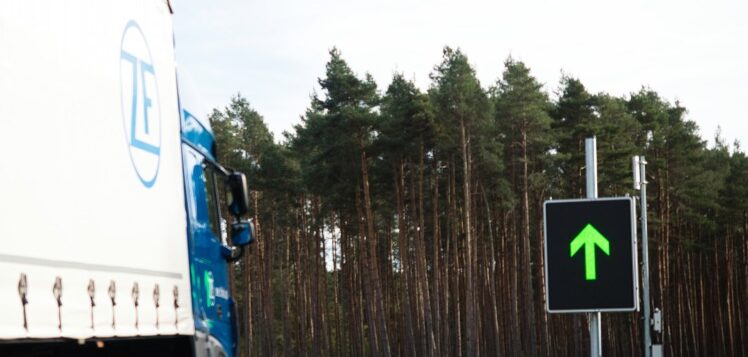As part of ZF’s Next Generation Mobility strategy, the Commercial Vehicle Solutions (CVS) division has announced that it has invested in 5G digital connectivity at the company’s commercial vehicle test track in Jeversen, Germany.
By equipping its own site with a powerful network, ZF has enabled the enhanced testing of solutions backed by big data, which are increasingly facilitating the next levels of Mobility as a Service (MaaS) and Transportation as a Service (TaaS). The installation will also support the development of Level 4 and 5 autonomous driving, which require seamless connectivity and enormous data management capabilities to enable autonomous vehicle control and the highest levels of safety.
“Our first 5G campus network-equipped test track sets another powerful milestone in the group’s Next Generation Mobility strategy,” said Dr Christian Brenneke, senior vice president of product engineering in ZF’s Commercial Vehicle Solutions division. “Ensuring that we continue to support our customers with rigorously tested, cutting-edge innovations, our advanced network capabilities will enable us to meet future advances and technology changes.”
Dr Rolf Reinema, vice president of IT workplace, IT infrastructure and operations and IT security at ZF, explained, “Based on an open, intelligent radio access network using a virtualized, cloud-based and open architecture, the new network ensures a stable transmission infrastructure with low latency and high security. It can safely transmit commands to and from the vehicles in near real-time, and its rapid handover capability ensures a seamless end-to-end data flow in moving vehicles.
“It took us just six months to set up this system for indoor and outdoor coverage using antennas that optimally ensure reliable handovers between base stations, even during high-speed vehicle maneuvers,” added Reinema.
ZF’s Jeversen test track is in Lower Saxony, Germany, and features a range of curves and straight and low-speed sections to replicate real-world roads. Thanks to the track layout and the newly installed, advanced 5G capabilities, ZF will be able to emulate a range of autonomous driving use cases, ranging from low-speed automated yard operations to high-speed highway operations. The network will also enable connectivity to roadside infrastructure including traffic lights and gates.
Being independent of mobile service providers will enable ZF to efficiently and flexibly adapt the campus network to meet changing technology requirements and expand it to support future technologies. ZF’s network allows seamless remote access and data transfer from test vehicles to cloud-based storage in addition to rapid downloads. This includes high-quality audio and video from moving demonstration vehicles and track-side cameras, which can be transferred to the visitor center to demonstrate ZF’s latest tech.


